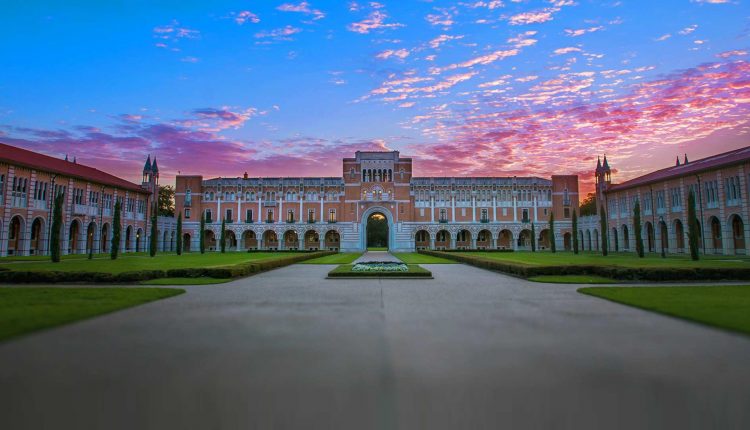Rice University declares initial commitment to support interdisciplinary research at new and existing research institutes
On July 1, Rice University announced an initial commitment to fund groundbreaking, interdisciplinary research at five new and existing institutes across campus.
The first phase of Rice’s research investment will support new Medical Humanities, Rice Sustainability and Rice Advanced Materials institutes along with the university’s existing Smalley-Curl and Ken Kennedy institutes.
“These institutes will lay the foundations to produce breakthroughs in medicine and health, energy and climate, national security, computing and more,” said Ramamoorthy Ramesh, executive vice president for research. “The Smalley-Curl and Ken Kennedy institutes have been breaking ground for years in these areas and the additional support will help to amplify the impact of their work.”
Rice’s research institutes focus on high-quality research and scholarship; attract external support from federal, industry, international and philanthropic sources; foster early-career scientists and scholars; and bring the world to Rice. These institutes draw upon the university’s strengths across academic disciplines and focus on solving the biggest problems of our lifetime, in energy, the environment, health care and information.
“Rice is one of America’s leading research universities, and this investment will not only cement that reputation but elevate it,” President Reginald DesRoches said. “It will also move us toward finding solutions to some of Houston’s and the world’s most challenging problems.”
The institutes will be led by internationally acclaimed faculty with the advice and support of an interdisciplinary faculty steering committee.
Kirsten Ostherr, the Gladys Louise Fox Professor of English, will lead the Medical Humanities Institute, building on her work as director of the university’s medical humanities program.
Carrie Masiello, the W. Maurice Ewing Professor of Biogeochemistry, Earth, Environmental and Planetary Sciences and professor of chemistry and biosciences, will lead the Rice Sustainability Institute.
Lane Martin, the Welch Professor of Materials Science and Nanoengineering, who was recently recruited from Berkeley to lead the Rice Advanced Materials Institute.
Naomi Halas, University Professor, the Stanley C. Moore Professor in Electrical and Computer Engineering, and professor of bioengineering, chemistry, physics and astronomy, and materials science and nanoengineering, will continue to lead the Smalley-Curl Institute.
Lydia Kavraki, the Noah Harding Professor of Computer Science and
professor of bioengineering, mechanical engineering and electrical and computer engineering, will continue to lead the Ken Kennedy Institute.
“The researchers leading these institutes are world-renowned experts in their fields,” Ramesh said. “Their leadership, along with the high-caliber graduate students and post-docs who will be working with them, will further the work Rice has already accomplished in areas of high impact to our city, state, country and world.”
The institutes were selected based on a review process that involved formal presentations by the institute leaders and the steering committee. Feedback was solicited from university deans and Rice leadership.
Ramesh said more institutes will be considered in the coming months, and another round of institute funding will be announced shortly thereafter, Ramesh said. The Office of Research will continue to expand Rice’s research enterprise through centers, Ramesh added, which will be more focused within disciplines than institutes. He said the university will consider proposals in the fall and begin funding the research centers in January.

